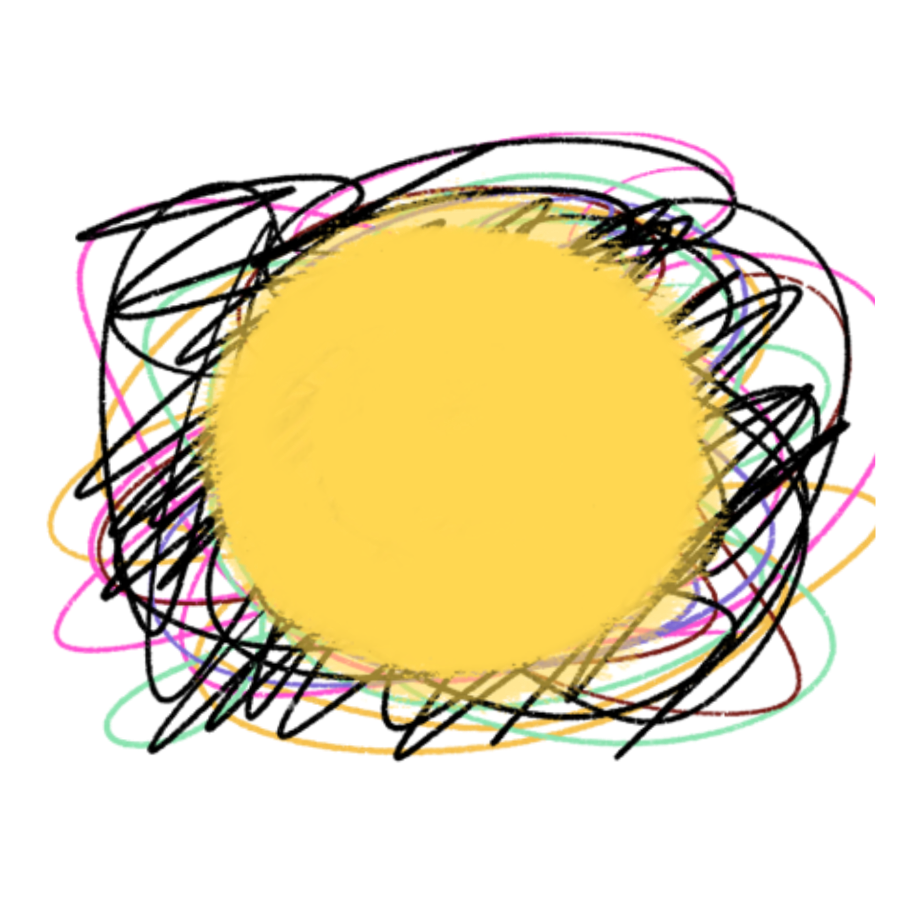Collapsing worldviews, companies as political actors, broadening the spectrum of voices, and climate futures action explorations.
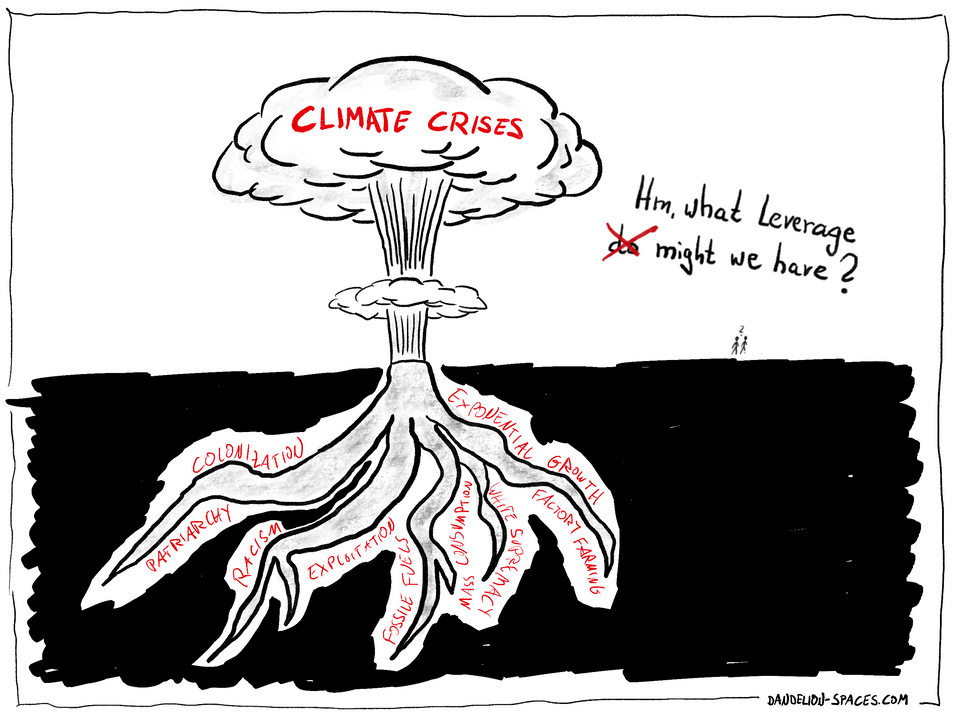
Welcome to a new seedling. With this newsletter, we want to publicly explore the question "facing the mess, what's our leverage?". The mess being the climate crisis. Alongside the inter-woven thicket of crises from decarbonization and regeneration to decolonization, diversity, and racism.
It's not that we haven't changed our behavior in the last few years. But searching for our most significant personal leverage, we feel we must go back almost to square one. We don't want to jump to conclusions and solutions too quickly. We intend to stay with the trouble for a while, sensing it, and let something new emerge. Instead of sharing our success stories, expertise, and tools as consultants and facilitators, we want to talk about what surprises or irritates us and what-if thoughts or as-if explorations. We aim to ask questions and speak our thoughts–even raw, unprocessed ones. Digging for the roots. In us. In our world.
Collapsing worldviews
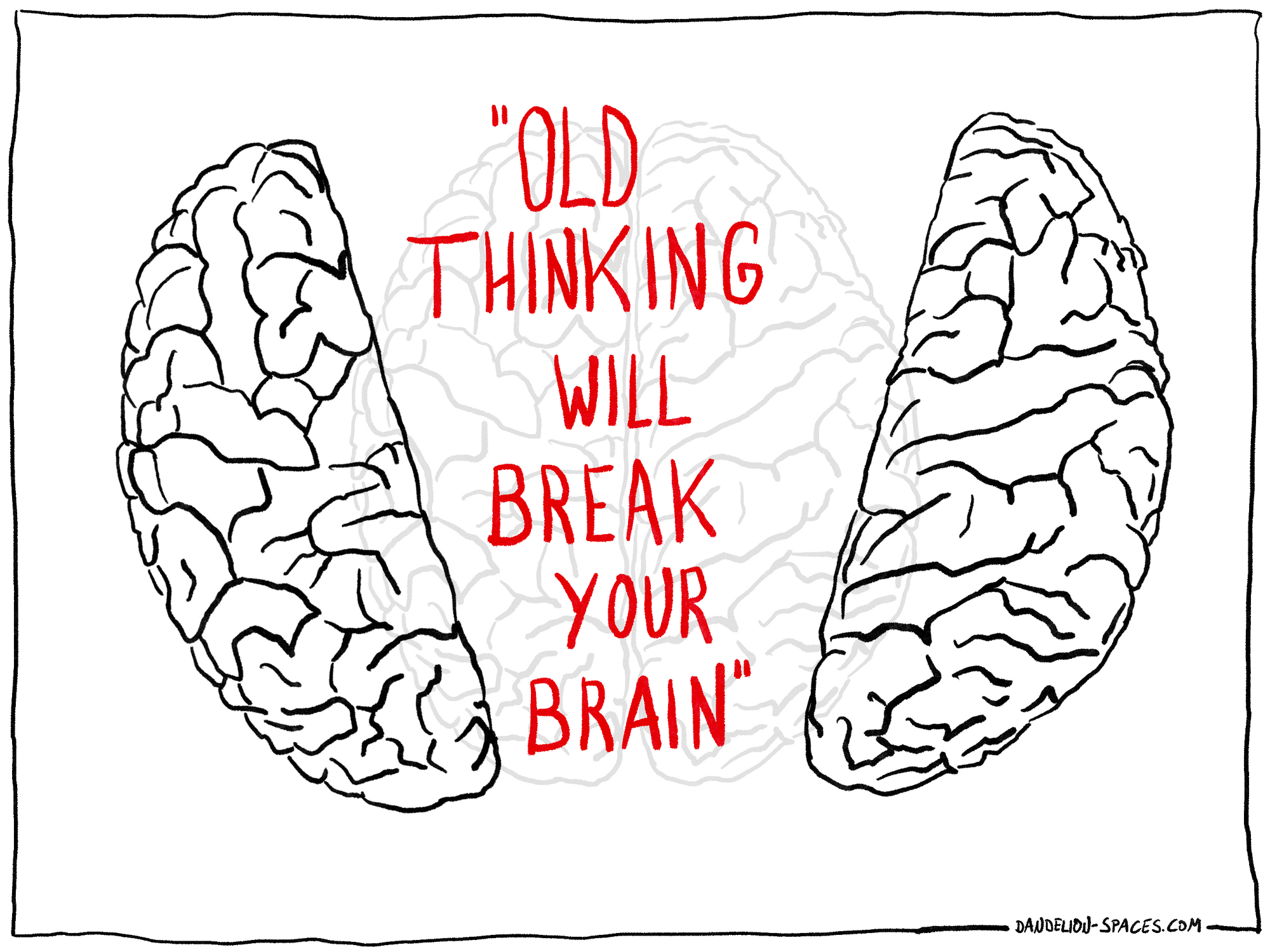
Alex Steffen recently published a looong and intense article that perfectly fits our intentions for Weeds & Seeds. Titled “Old thinking will break your brain. Why updating the way we look at the world is so critical now, and so hard, and how we can get better at doing it.” Alex starts with the multiple crises of today and how they will define an era. A wide range of feelings emerged when reading it: shutting down, avoiding, being sad, angry, powerless, exhausted, and grieving. “The planetary crisis is swallowing the world we thought we knew, whole, in one great gulp.” But the mess we are in is even bigger than that as we fail to understand and respond to it appropriately. “We’re trying to understand an unprecedented future with the worldviews of an older age, formed on a different planet.” Alex makes a point about our collapsing worldviews as societies, organizations, or individuals and how to rebuild new ones to create spiky victories. We started this newsletter to share how our worldviews are crashing and how we struggle and wriggle to build new ones to find our leverage.
Organizations as political spaces
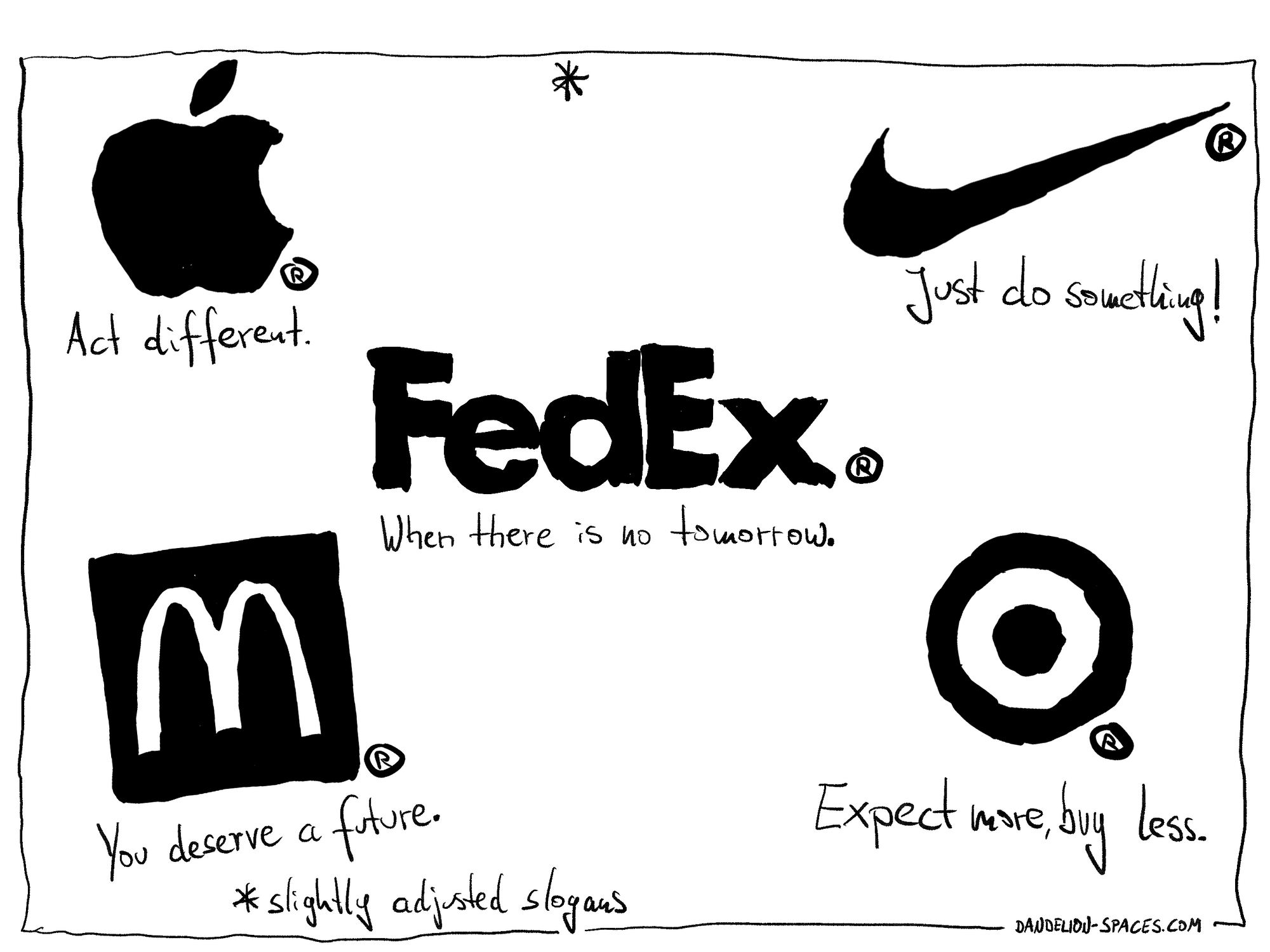
The revision of the Roe vs. Wade case on women's rights regarding abortion is deeply painful*. It is a major setback for more social justice that is hard to bear. Among the many things that this event stirred up was the observation that companies like Patagonia announced to bail out employees protesting against the Supreme Court order, as well as take over travel costs for employees to have an abortion in another state. Of course, part of this is a good PR. But it may also mark a shift in how people act within the organizations that employ them. Too often, it has been taboo to put forward social justice and ecological emergency actions within the work context.
Nevertheless, organizations of all kinds have massive leverage in almost any social-ecological transformation issue. And comparing to legislation, organizations are much faster to act and do something. We have been fascinated by organizations as one driver of change for a while now. Wouldn't it be great to hear more about employee-driven green initiatives in companies and institutions? Imagine witnessing more strategically relevant projects around social-ecological transformation issues. It's one thought we want to hold on to: do we have leverage in bringing together a circle of executives from different organizations to identify shared leverage–and then act on it.
*a remarkable simultaneity is this footnote: on the same day, June 24th, German parliament voted to remove ban on 'abortion advertising'.
Climate Futures Action Explorations
After reading the book Ministry for the Future by Kim Stanley Robinson last autumn and further inspired by his experiences at COP26, we developed the idea of combining climate-oriented science fiction with our love for virtual action methods. To use the power of storytelling, futures, and embodied experiences in the virtual world. To dream together, spark imagination, and inspire for action. We collaborated with Extinction Rebellion XR Wordsmiths and their Solarpunk Storytelling Showcase for the first series to experience winning stories with our bodies. Read more about our intentions. In the last six months, we hosted seven sessions (aka episodes) with different facilitators, different action methods (Newspaper Theater, Social Presencing Theater, Playback Theater, Sociodrama, Improv, Participatory Drama, Clowning, and Forum Theater), and different stories. Chetna Mehrotra and Roshan Karkera brought some children as actors in the final session. These kids also participated in some drama action around the COP26. With the presence of these ten-year-olds from Mumbai, climate futures became much more tangible as we met a future generation. As Mick from XR Wordsmiths said: “Meeting these kids has made me much more hopeful regarding the future of mankind than I was two hours ago.” Working with and giving voice to these future generations deeply irritated and inspired us.
Thank you, Uri Noy-Meir (Imaginaction), Noa Leibu and Storylane Playback Theatre, Ron Wiener and Irina Stefanescu, Summer Banks, Mick Haining, Robyn Hambrook, Chetna Mehrotra, and Roshan Karkera, as well as Lottie, Mick (again!) and Jeremy from the XR Wordsmiths.
After the summer break, we will work on a second series and develop this line of work further. Maybe we can bring it to virtual conferences and eventually form a community around this body of work. Get in touch with us if you would like to facilitate, host or harvest such sessions. We will also read “Our Shared Storm” by Andrew Dana Hudson over the summer. Possibly, that will also bring a new twist.
A broader spectrum of voices
To find ways out of the multiple crises, we need a pluriverse of actors and actions. Surely, a much more diverse range of voices is needed. Looking at the majority of our sources and influences as transformation consultants and facilitators, it's clear: the theories and voices from beyond Europe and the US that are non-white, queer, or feminist are as rare in our network as those of future generations. We want to highlight and amplify a more diverse set of voices in this and the forthcoming newsletter editions. Please help us to expand our horizons. Please help us burst our bubble.
We follow the work and thoughts of Manish Srivastava (Presencing Institute), Chetna Mehrotra (Rangbhumi), and Bayo Akomolafe. We read Emergence Magazine on Instagram and in print. We follow Possible Futures. And, of course, Adrienne Maree Brown is a constant source of inspiration and irritation. Her book Emergent Strategies even inspired us to the name Dandelion Spaces. So please let us know who else is worth following and connecting with, what newsletters to read and subscribe to, which (virtual) conferences to attend, and (virtual) communities to join.
Check out this forthcoming session:
Manish Srivastava hosts a virtual series around the pathways of resilience in the following months. Each session is full of poetic reflections and contemplative practices from his book “Midnight Journey of a Seed.” The first session was an enlightening experience. We reflected upon and appreciated the resources that helped us during the hard times of the pandemic. We intend to be there for the following sessions, too. You can register here.
As this is the first newsletter, we highly appreciate your feedback. Please let us know what you think. What irritated and surprised you? What emerged after reading it?
We are looking forward to hearing from you. We might react late due to a summer break.
Some sources with quotes, heavily connected to the thoughts above:
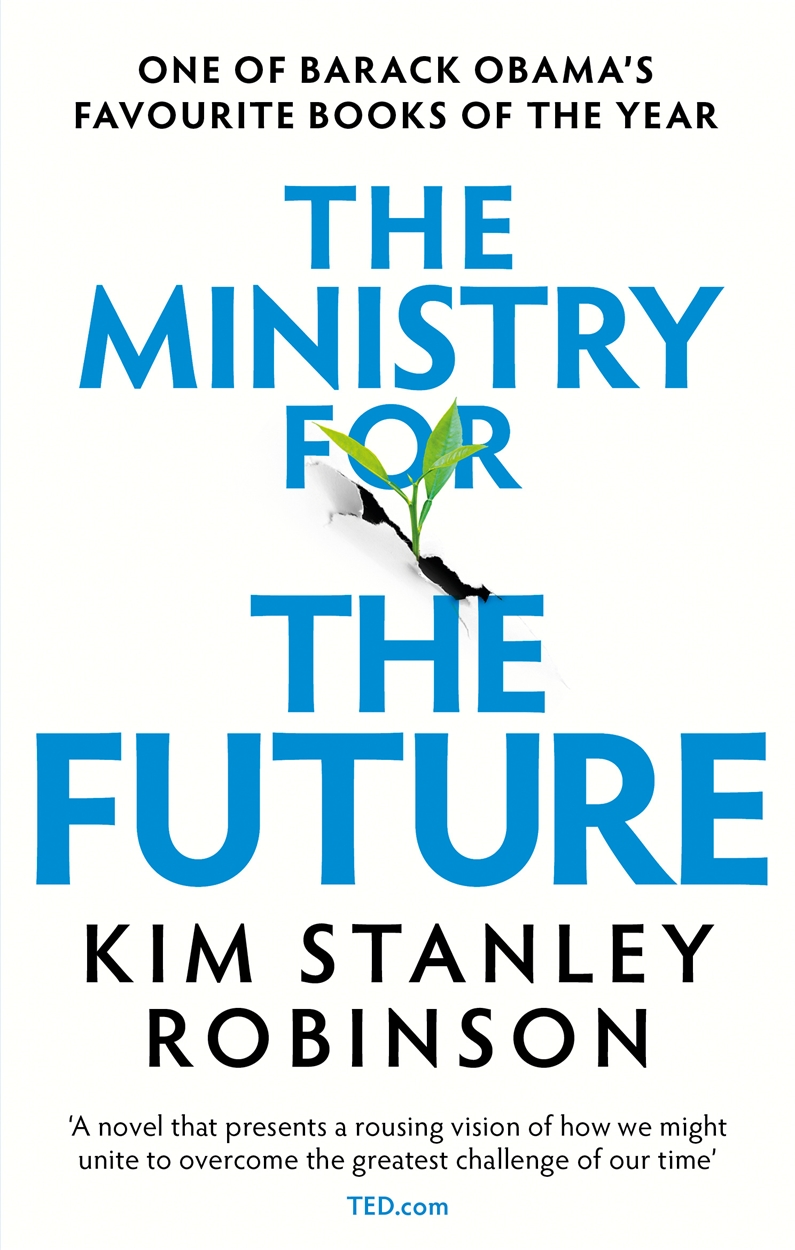


My mentor Grace Lee Boggs used to ask this question all the time, to anyone who came to visit and learn with her, in any meeting she attended, or speech she gave. She wanted us—her students, comrades, and community—to keep a wide, long lens about our work. To remember, all of the time, that this moment is not the only moment. Human development moves in these massive cycles and phases, and there are always agents of change who ideate and practice and push and grow those shifts. She reminded us that there are changes available to us that are distinct to this time, and she urged us to be present to the opportunities that are current. She knew that we are not individuals simply living these solitary lives in a vacuum; we are the cells of our time-body, the collective physical body of this moment, interacting with each other and the earth and technology in ways that will create an age."
